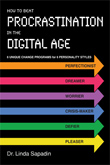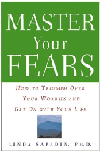Immature love says, “I love you because I need you.”
Mature love says, “I need you because I love you.”
~ Erich Fromm
 One of the best things about “being in love” is that you feel really good about yourself. It’s not only that you perceive the other person as terrific; it’s that you feel terrific about who you are and what you’re about. Yes, emotions are contagious. People catch them from others. So, when your love is acting lovingly toward you, it’s natural for you to feel joyous, confident, smart and secure.
One of the best things about “being in love” is that you feel really good about yourself. It’s not only that you perceive the other person as terrific; it’s that you feel terrific about who you are and what you’re about. Yes, emotions are contagious. People catch them from others. So, when your love is acting lovingly toward you, it’s natural for you to feel joyous, confident, smart and secure.
Yet, as time passes, some “loving relationships” become anything but loving. Indeed, some become downright abusive. How does something like that happen? How can “love” be experienced so differently by different people?
Listen to the complaints of one young woman:
“I was flattered when he wanted to be with me all the time. I felt so special when he told me he couldn’t live without me. Now, I see how possessive he is. He wants to be with me all the time, not because he loves me so much but because he wants to control me.
When he called me many times a day, I felt like he was the most loving person, caring not only about me but also about who I was with and what I was doing. Now, I see how jealous he is. He didn’t trust me unless he knew where I was every moment of every day. It feels so yucky to me now.
He’d frequently give me advice about “life.” It could be politics, business, finances, how to talk with others, who to hang out with. It felt good to listen to him. He seemed so knowledgeable, so worldly. I liked that he was teaching me so much. Now, I see that he needs to give me “advice” about everything because he wants me to do things his way.”
So, now that she recognizes what his “loving” behavior was all about, does she break off the relationship? No way. Why? Because even though he becomes enraged when he doesn’t know where she is, sulky when she doesn’t listen to his “advice”, irked when she’s chatting with others on the phone, she still loves him.
Really? What kind of love is this where she is miserable most of the time – crying about how he treats her, afraid of being criticized for what she did (or didn’t do), worried about what mood he’ll be in when she next sees him. Does this sound like a loving relationship?
Love is a word that is bandied around a lot and has many different meanings. Here are three of them:
ROMANTIC LOVE is marinated in fantasy. Excitement rules the day. You are walking on air. He can do no wrong. You are the luckiest woman on earth. Nothing will ever come between the two of you.
But, alas, infatuation does not stand the test of time. As it wanes, either a couple breaks up (“that was a great love affair”) or it develops into seasoned love.
SEASONED LOVE is marinated in caring, respect, trust and empathy. Differences are respected. Conflicts are worked out. Individuality is respected. Love grows deeper. Love grows stronger.
And then there is addictive love.
ADDICTIVE LOVE is marinated in desperation. You feel you cannot live without this person. You need him to feel complete. Though you no longer feel good about yourself like you did when you were “infatuated with him,” you, nevertheless, feel you can’t leave him.
“BUT I LOVE HIM” has become your mantra. Despite rarely enjoying being with him, you love him. Despite being constantly criticized, you love him. Despite crying about insults you’ve received, you love him. Despite being afraid of his anger, you love him.
Clearly, addicted love does not listen to logic. It does not respect reason. It does not give credence to other people’s counsel. Despite your self-worth hitting a new low, you don’t leave the relationship. Just like a drug addict, you cannot give up your drug of choice.
So, what’s to be done if you are or know someone who is “addicted to love?” Take a first step by labeling it for what it is. It’s not love; it’s addiction. Admit the truth. You fear losing him. You fear being alone. You fear moving out of your comfort zone.
Once you summon up the courage to admit what your problem is, then seek out the services of a psychologist who can offer you support while providing you with the skills and strategies you’ll need to let go of your addiction. Then, one day, I have no doubt that you will be ready for a loving relationship that grows stronger and warmer as time goes on.
And, if you are wondering if this article could have been entitled …But I Love Her, the answer is absolutely yes.
©2013
Linda Sapadin, Ph.D. is a psychologist and success coach. She specializes in helping people enrich their lives, enhance their relationships and overcome self-defeating patterns. Contact her at lsapadin@drsapadin.com. Visit her website at www.PsychWisdom.com.





This is a really awesome awesome article. I enjoyed that you make the connection between being addiction and love. I remember a experience sort of this way in my 20’s and I’m thankful I grew up a bit to appreciate it in my 30’s. You live and learn.
Love is like the season. It moves in a cycle the whole year round. The first season in a year is spring, which means that love starts to bloom in anyway it can. Then comes next is summer in which love burns like the heat of the sun depending on how it was fueled. Next to it is fall, in this season or stage things my start to turn sour and feelings can’t run away from getting depressed. The last season is winter where in eveything dies out and freezes in an instance and make you feel numb. It makes your feelings turn to ice.